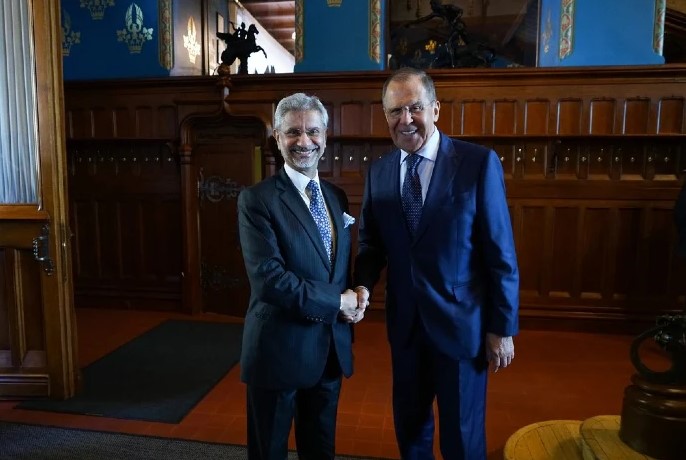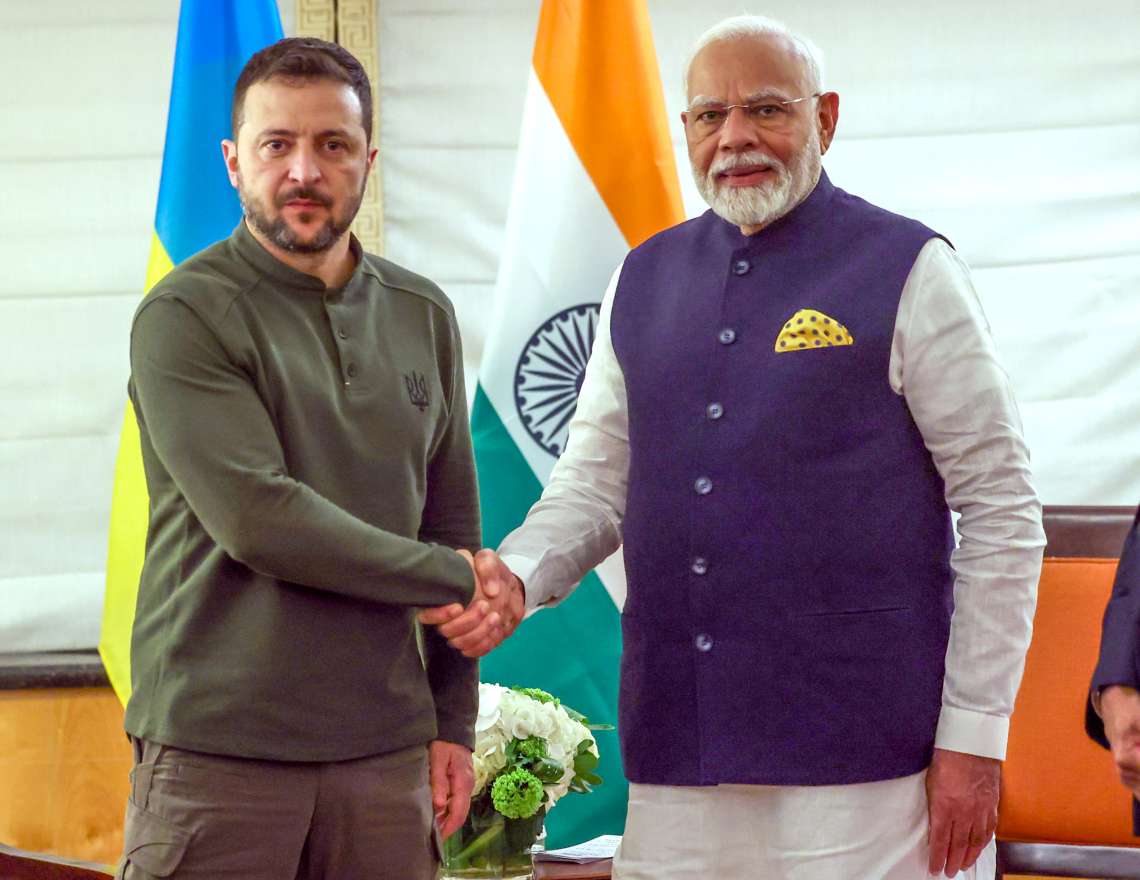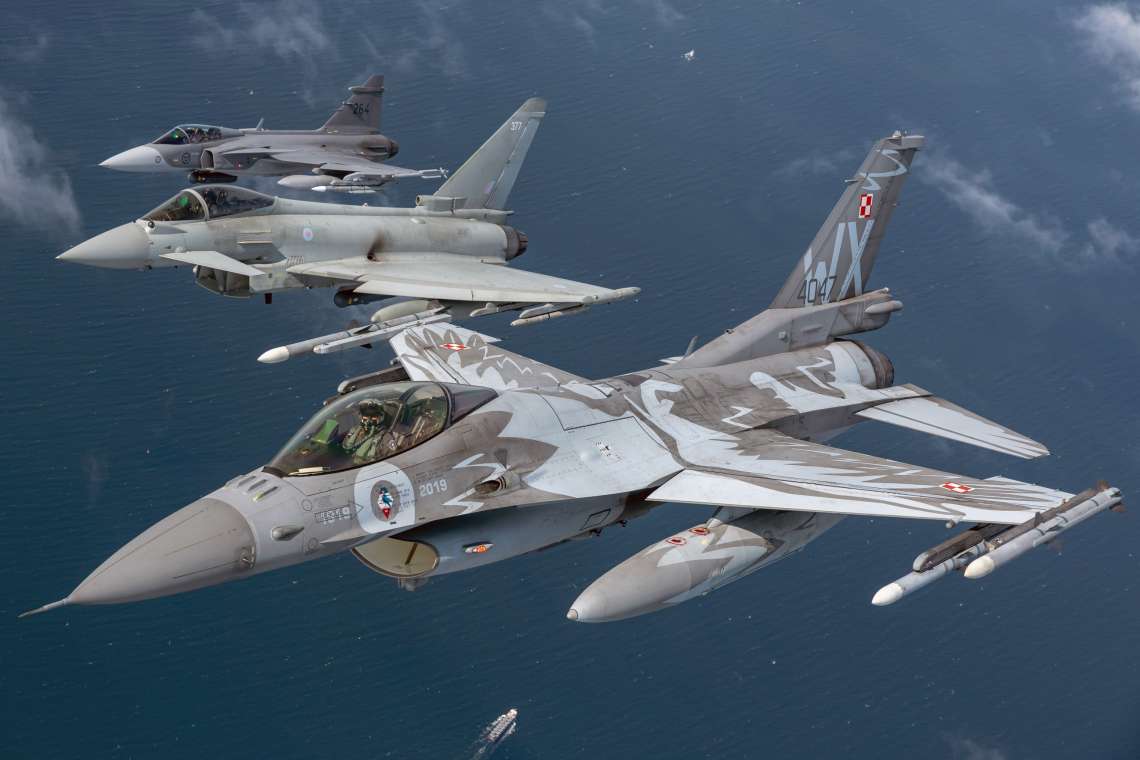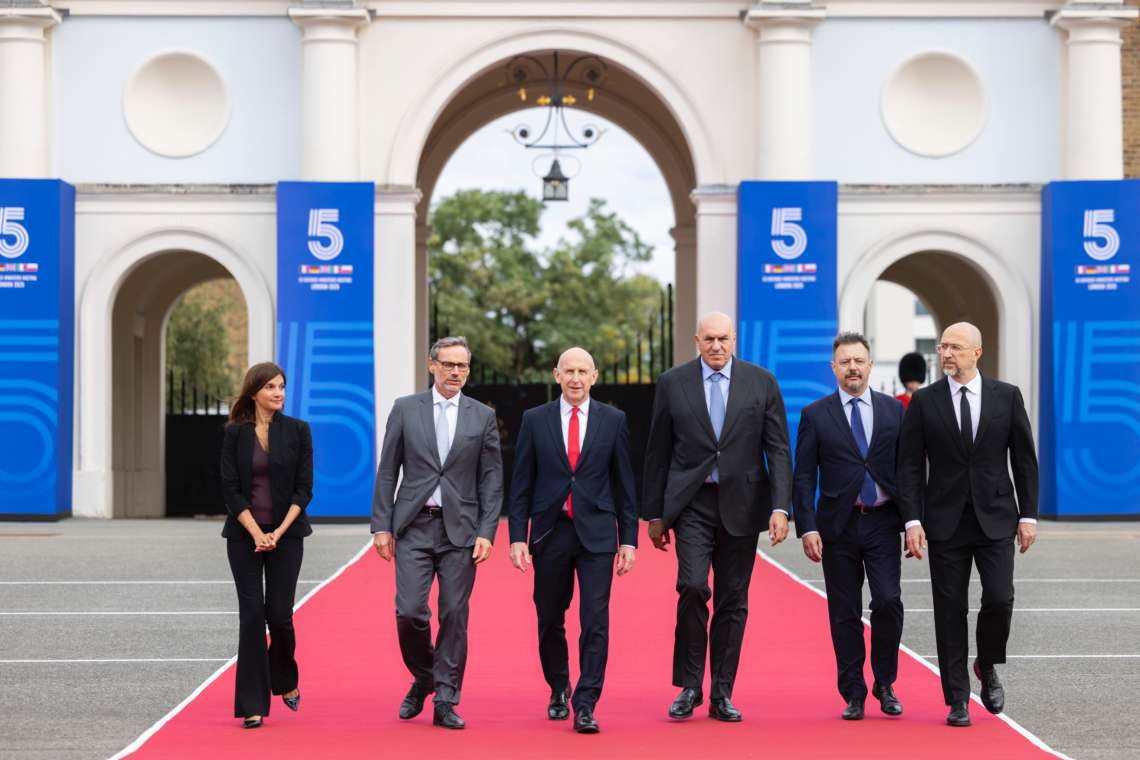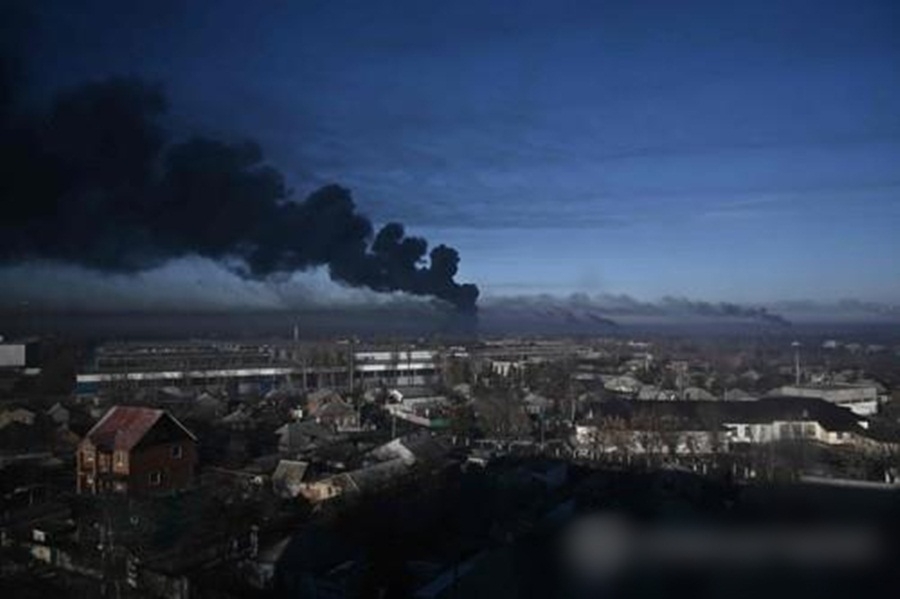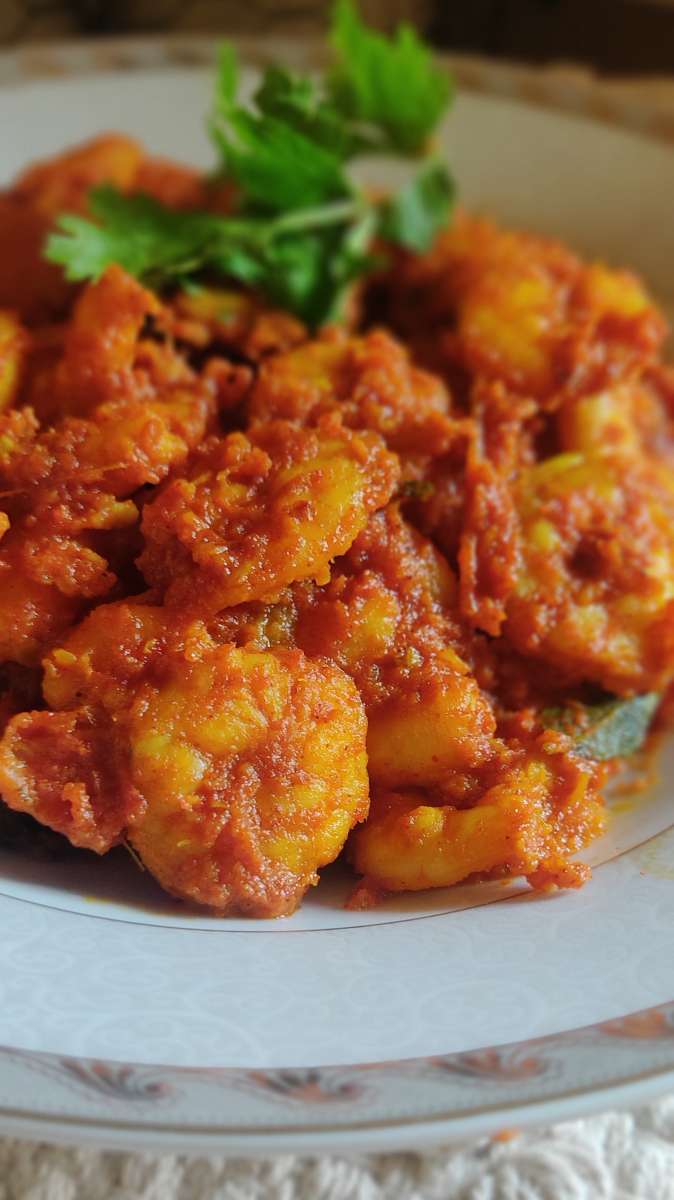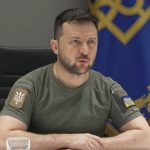The speculation about India playing a possible role in mediating between Russia and Ukraine grew following a report, which said the Indian side played a key role to convince Russia about a deal to free up stocks of Ukrainian food grains…reports Asian Lite News
Speculation swirled on Sunday that external affairs minister S Jaishankar’s visit to Moscow this week could lead to efforts to end the war between Russia and Ukraine though officials in New Delhi remained tight-lipped on the matter.
Officially, Jaishankar is travelling to Russia on Monday to co-chair a meeting of the bilateral Inter-Governmental Commission on Trade, Economic, Scientific, Technological and Cultural Cooperation (IRIGC-TEC) with Russian trade minister Denis Manturov, and to hold talks with his counterpart Sergey Lavrov. The meetings are scheduled for Tuesday, people familiar with the matter said.
The speculation about India playing a possible role in mediating between Russia and Ukraine grew following a report in The New York Times, which said the Indian side played an “important behind-the-scenes role” in July to help convince Russia about a deal brokered by the UN and Turkey to free up large stocks of Ukrainian food grains, and then asked “Russia to back off” in September when Russian forces were shelling the Zaporizhzhia nuclear plant in Ukraine.
Referring to Jaishankar’s visit, the report added, “Diplomats and foreign-policy experts are watching closely to see if India can use its unique leverage as one of the world’s largest countries that is a friend to both East and West to press Russia to end its war in Ukraine.”
The Washington Post too reported that Prime Minister Narendra Modi “offered assistance on peace talks” in a phone call with Ukrainian President Volodymyr Zelenskyy on October 4. The report added, “He was spurned by the Ukrainian leader.” At the time, Zelenskyy told Modi that Ukraine would not conduct any negotiations with Russian President Vladimir Putin though Ukraine is “committed to peaceful settlement through dialogue”.
There was no response from Indian officials to these reports, though people familiar with the matter said the external affairs minister’s visit was not expected to lead to any immediate breakthrough in the context of Ukraine. The people pointed out that while the Indian side continues to have very close ties with the top Russian leadership, it was unlikely that Ukraine currently sees India as a player that could help end the hostilities.
Since Russia invaded Ukraine in February, New Delhi has refrained from publicly criticising Moscow and abstained on all Ukraine-related votes at UN bodies. At the same time, it has consistently said that the territorial integrity and sovereignty of all states must be respected. Modi has repeatedly pushed for an end to hostilities and a return to the path of diplomacy and dialogue.
Modi first suggested to Putin during a phone conversation in March that he should hold direct talks with Zelenskyy. During a meeting with Putin on the margins of the Shanghai Cooperation Organisation (SCO) Summit in Uzbekistan on September 16, Modi nudged the Russian leader to end the conflict, saying “today’s era is not of war”.
In his October 4 phone call to Zelenskyy, Modi “conveyed India’s readiness to contribute to any peace efforts”. Zelenskyy, according to a statement issued by his office, referred to Russia’s referendums in four regions of Ukraine and “emphasised that under such conditions, Ukraine will not conduct any negotiations with the current President of the Russian Federation”.
The New York Times also cited Indian officials to report that French President Emmanuel Macron floated the idea of hosting peace talks along with Modi earlier this year. The effort “never materialised” but it showed “India is increasingly viewed as a potential peacemaker with access to both sides”.
In the context of Macron’s proposal, the Indian side indicated it wasn’t clear what the West wanted as an ultimate settlement for the Ukraine war or who would enforce any ceasefire that was struck.
The report also referred to unidentified diplomats floating the possibility of a joint mediation effort led by India, Israel and the United Arab Emirates, all countries that have tried to stay neutral in the Ukraine conflict.
These developments come at a time when the US administration is “privately encouraging Ukraine’s leaders to signal an openness to negotiate with Russia and drop their public refusal to engage in peace talks unless President Vladimir Putin is removed from power”, The Washington Post reported.
The request is not aimed at pushing Ukraine to the negotiating table, and it is a “calculated attempt to ensure the government in Kyiv maintains the support of other nations facing constituencies wary of fuelling a war for many years to come”.
While US officials share their Ukrainian counterparts’ assessment that Putin isn’t serious about negotiations, they acknowledge that Zelenskyy’s ban on talks with him has “generated concern in parts of Europe, Africa and Latin America, where the war’s disruptive effects on the availability and cost of food and fuel are felt most sharply”.
ALSO READ-Jaishankar flags change in world affairs amid Ukraine war


